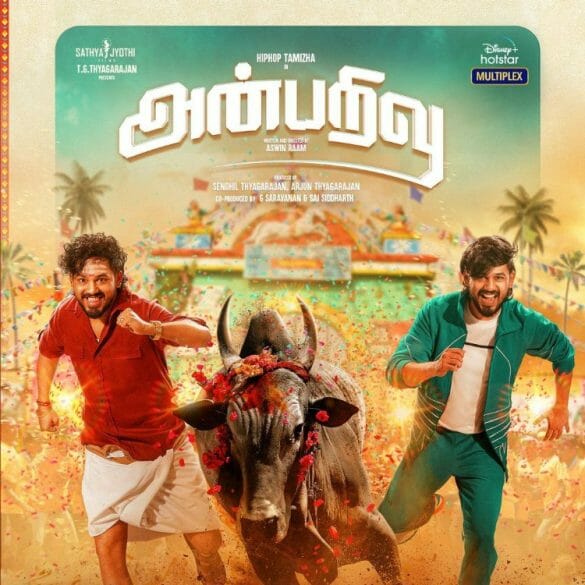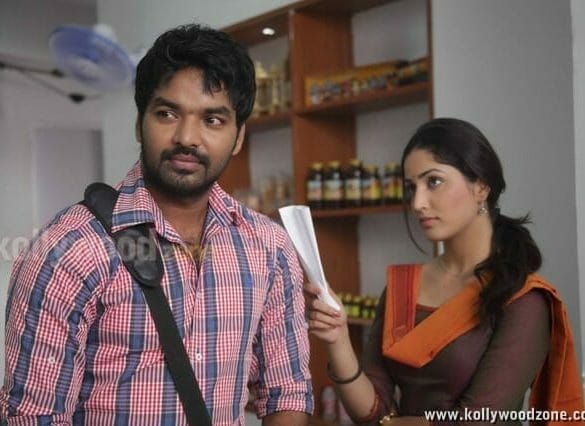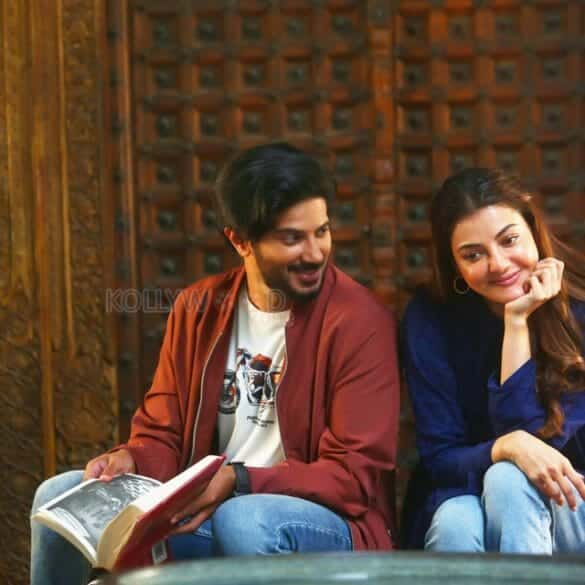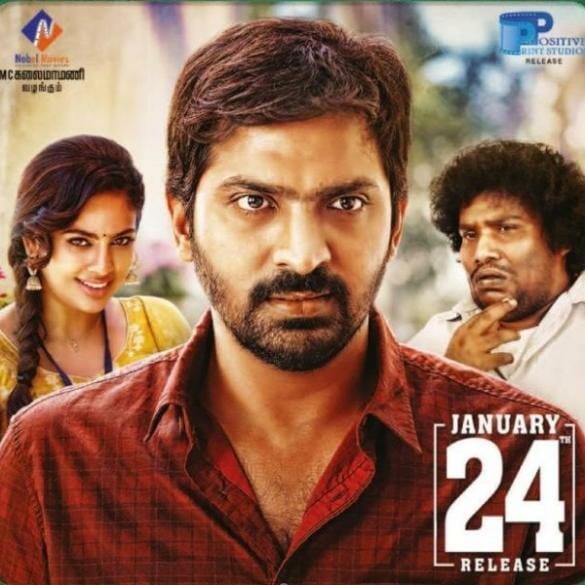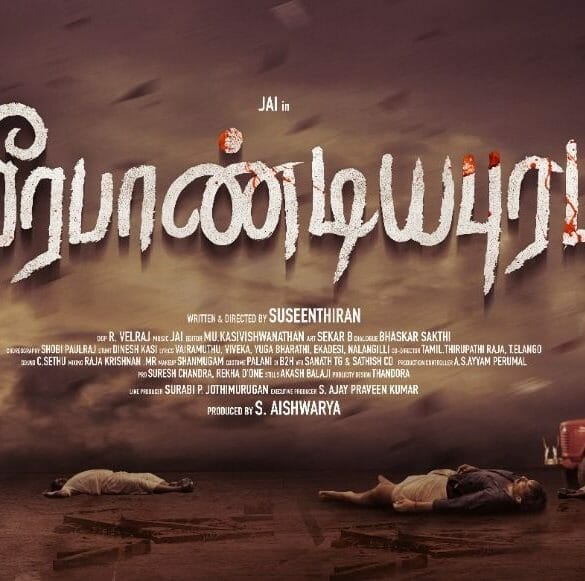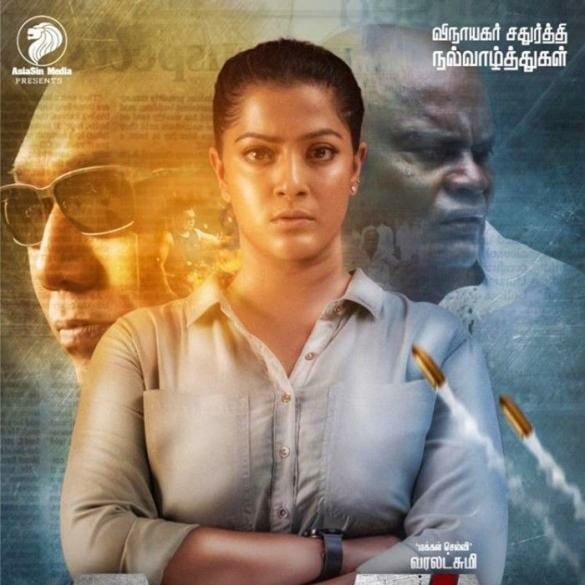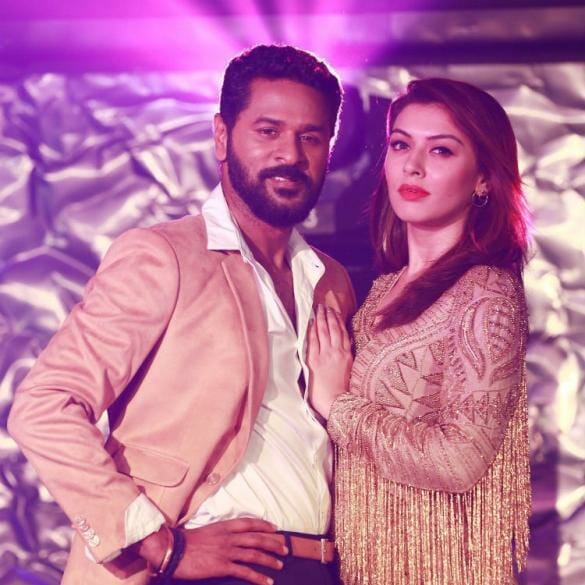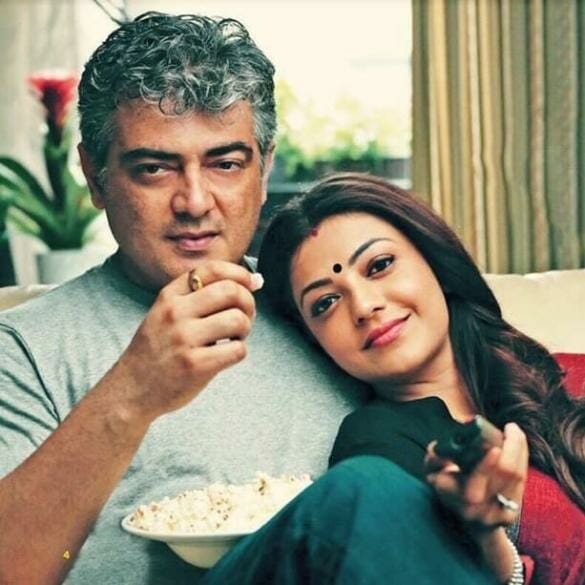A trend of making period dramas is at its nascent stage in Tamil cinema. There are signs of its upswing. August 16, 1947 is about a rebellious youngster who spearheads the independence moment of his remote village which is viciously kept uninformed of India’s independence by its avaricious British general. Actor Gautham Karthik who was last seen in a supporting role in the neo noir action thriller movie Pathu Thala is back on screens with his period action flick August 16, 1947 in which he has essayed the lead role. Actress Revathy Sharma has depicted the female lead role in the drama. Debutant film maker N S Ponkumar has written and directed the movie. So, how has the period action film August 16, 1947 come out? Will it aid actor Gautham Karthik to deliver a solid commercial success that he is striving for, and be a successful debut for director N S Ponkumar? To know that let us get into the movie review.
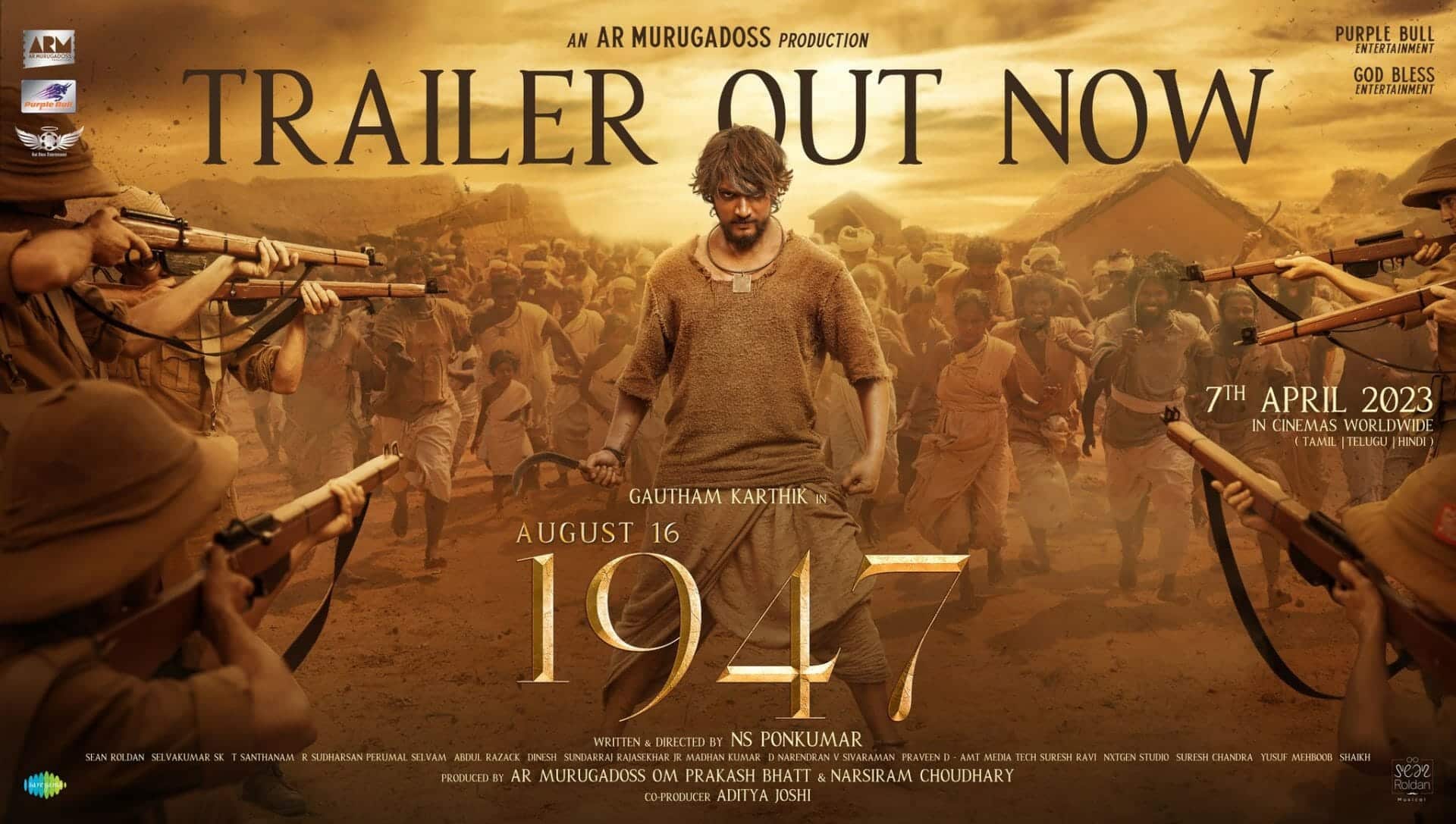
August 16 1947 Movie Poster
August 16, 1947 is set at the backdrop of the Indian independence era in a fictional village named Sengadu which is under the control of British general Robert Clive (Richard Ashton) and his perverted son Justin (Jason Shah). Both father and son exploit the villagers by making them slave around for more than 16 hours a day, and take all the proceeds that come out of it. Besides this, they are basically sadists who take pleasure in people’s suffering. Robert Clive has a thirst for blood and deploys different tortures to kill people. Justin on the other hand does not leave a woman in the village who appears in his site, and goes after women who attain puberty. Fearing Justin, people of the village either kill their daughters in the name of dignity or dress them up as a boy child.
Paraman (Gautham Karthik), is a youngster of the village who functions at the beck and call of Robert Clive. He is in love with Thenmalli (Revathy Sharma). We witness Paraman as a bystander to all the mayhem that is committed on his fellowmen with whom he sings and dances around. At one point the knife is pointed at him. It is then he becomes a rebel and realizes that he must put up a fight for his people. What would our protagonist have done had the knife been pointed at someone else’s neck? That would have made for an interesting plot line. From that point the film takes a predictable path. He gathers people. Hatch plans to take out the colonialists. Will Paraman be successful in organizing his men, and overthrow the invaders to win their freedom is what makes the rest of the flick.
To begin with, storyteller N S Ponkumar had an interesting idea to work on. What if a fragment of India is not informed of the news of independence? What a situation like that would present to the inhabitants of the region? The idea unlocks space for being lavishly creative. Unfortunately, the director narrows his own idea and directs unwarranted attention to the cruelest pervasive facet of the struggles endured by people during the freedom moment. The very characterization of Justin is shaped in a way to achieve this repugnant pervasive nature. To do that he makes the character to grope a minor, use a deity as a sex toy, and have a hobby of raping women who reach puberty. What makes it even messier is director N S Ponkumar’s deliberate attempt to build a plot to accommodate these atrocities and let the film revolve around it. On top of this, we have gruesome killings, whipping, and boiling of humans. All these drain us mentally and make it incredibly difficult to continue to lend our attention to the film.
Not that one should abstain from depicting sexual abuse and oppression that was unleased on people. But these sensitive portions demand a nuanced subtle writing technique of not overdoing these portions to merely milk emotions, and at the same time not fail to capture the sorrow and distress of people. But director N S Ponkumar’s writing achieves the former. It is this problematic element that makes us frown at what otherwise is a decent premise. Actor Robert Clive’s part is also written badly that his very presence is merely targeted at constructing a petrifying atmosphere. It seems like a forced attempt or rather a convenient way to portray the inhumane injustice people endured during the struggle for independence. We do not get much details beyond the surface level beating up and exploitation. Perhaps if director N S Ponkumar had exhausted his energy exclusively in scripting the romantic angle of the lead pair, August 16, 1947 would have gotten a place adjacent to the much-celebrated Madrasapattinam. For reasons known only to him, he has preferred not to do it.
Gautham Karthik has got under the skin of his character and has infused life into it. His makeover helped settle him in his character from the independence era. He looks quite comfortable playing his part, and sells Paraman convincingly without shedding a sweat. Actress Revathy Sharma has bagged a decent role. For a rookie performer she shoulders her role smoothly, and has done complete justice to her part. Actor Richard Ashton is menacing as an antagonist. Unfortunately, only ‘intimidation’ seems to be his ultimate task as a performer. He is made to overplay the fear factor which evidently appears contrived. Even actor Jason Shah’s characterization falls in line with the similar approach, and suffers the same fate. Actor Pugazh as usual shines with his eccentric expressions, and offers the much-needed occasional comical break. Actor Bose Venkat makes his presence felt even in a short screen time. Actress Neelima Rani serves the purpose for which she was brought on board. Actor Madhusudhan Rao is effective as always. The rest of the cast has delivered what was asked of them.
On the technical front, music director Sean Roldan’s tracks are decent but do not captivate our attention longer. However, he adds value to the flick with his excellent background score. Cinematographer S K Selvakumar’s frames are splendid. His lighting is a treat to the sore eyes. Editor R Sudharsan has put his scissors to fine work, and has trimmed out flaws in the visuals.
On the whole, a tad tweaking in screenplay and execution would have engraved actor Gautham Karthik’s August 16, 1947 in the category of must watch independence period dramas. But now it is an opportunity missed.
